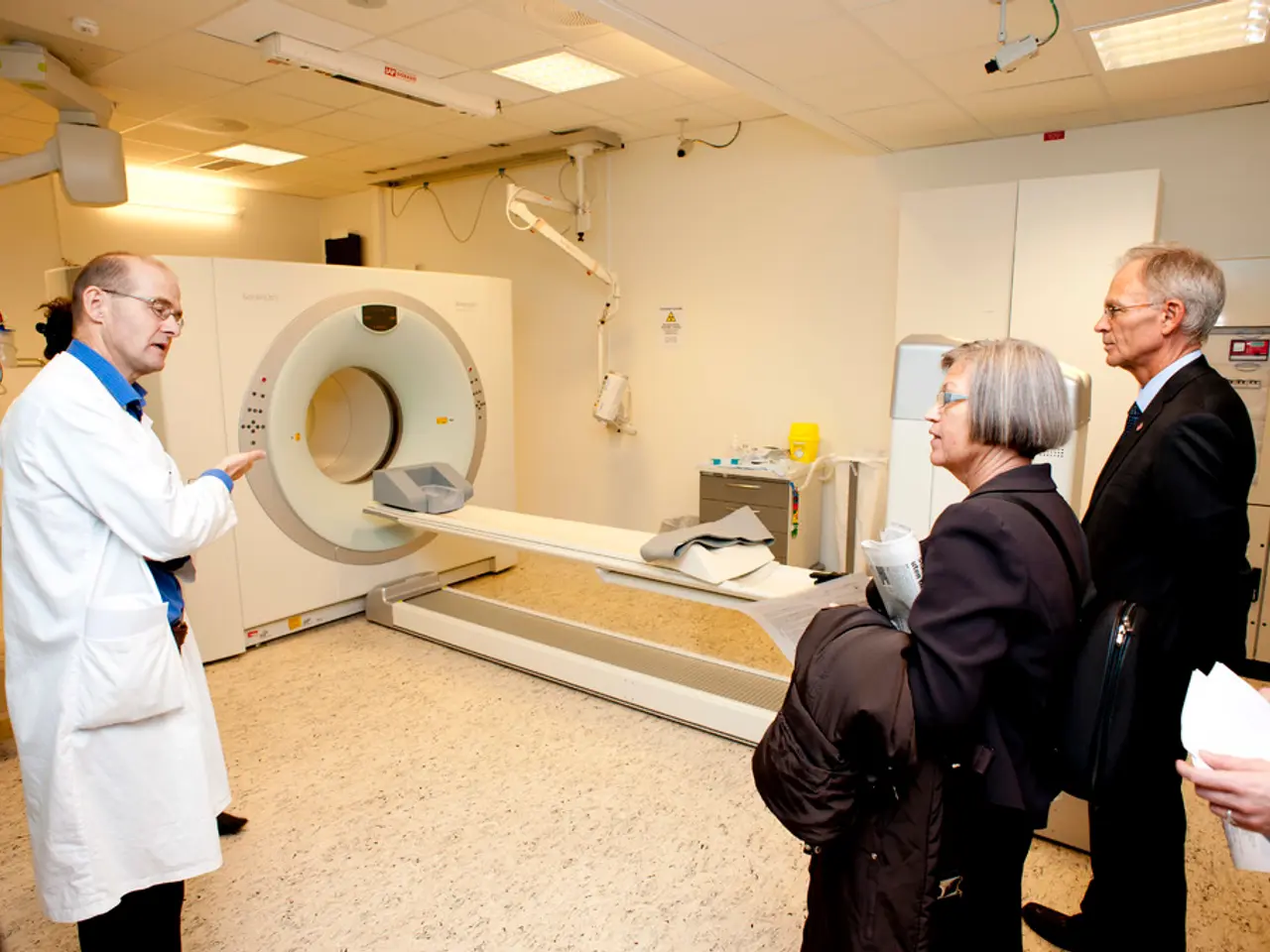School COVID-19 testing oversight in Kentucky found wanting by federal officials, according to allegations
A recent audit by the U.S. Office of Inspector General (OIG) has highlighted several issues with Kentucky's COVID-19 screening testing program in K-12 schools. The key findings include:
- Lack of Effective Monitoring: The audit revealed that Kentucky did not effectively monitor the implementation of COVID-19 testing in schools. This includes irregularities in ensuring that vendors comply with requirements and conduct background checks for personnel involved in testing.
- Background Checks for Contracted Employees: The audit discovered that out of a random sample of 292 contracted employees, 75 did not have background checks completed before performing testing. This raises concerns about the oversight of personnel involved in school testing programs.
- Allowability of Testing Expenditures: The audit identified concerns regarding the allowability of certain COVID-19 testing expenditures. Specifically, it noted issues with the compliance of seven vendors who did not meet requirements to act as school testing services. This could potentially lead to a CDC investigation into over $4.5 million in COVID spending, which might require the state to refund money to the federal government.
Kentucky officials have agreed to update procedures for compliance, but the state has not yet concurred with the recommendation to investigate the significant COVID spending. The audit, conducted from July 2023 through March 2025, says Kentucky needs to determine the allowability of about $4.5 million in testing expenditures and refund to the federal government any unallowable amount.
The report also alleges that seven out of 19 vendors awarded testing contracts did not meet at least one requirement for providing testing services for students and staff in K-12 schools. Additionally, the U.S. Office of the Inspector General found that 75 contracted employees in Kentucky did not complete background checks before providing COVID-19 testing on K-12 school property. An estimated 292 of 2,120 contracted employees who were looked at for the report did not have background checks completed before performing COVID-19 testing on K-12 school district property.
In a statement, cabinet spokeswoman Kendra Steele said the state "made full use" of the federal dollars to test students and "these efforts helped protect lives." The state then contracted vendors from July 15, 2021, to June 30, 2022, to do the screenings. The remaining $5.5 million went to other costs like air purifiers in schools and administrative support.
One vendor, not named in the report, was paid approximately $69 million for COVID-19 testing despite not submitting the necessary documentation to prove it had been in business for at least a year. Six vendors were paid $9.7 million for testing services despite not meeting all the contract requirements. Kentucky acknowledges that testing and reconciliation of testing was a rapidly evolving process that improved with time and experience.
It's important to note that Kentucky was one of many state and local health departments to receive American Rescue Plan funding during the pandemic from the Centers for Disease Control and Prevention to help screen for COVID-19 and reopen schools. The state received about $134 million on April 7, 2021, to help screen for COVID-19 in schools. Of that money, $128.9 million went to 1.4 million COVID-19 tests conducted by 19 vendors.
The report does not mention any update in Kentucky's procedures to make sure it is following federal contract guidelines and properly overseeing compliance as previously stated in the response from former Cabinet for Health and Family Services Secretary Eric Friedlander. The report includes a written response from former Cabinet for Health and Family Services Secretary Eric Friedlander dated April 29, stating that Kentucky agrees with part of the analysis and needs to update its procedures to make sure it is following federal contract guidelines and properly overseeing compliance.
- The government's nonprofit education-and-self-development division is under scrutiny following an editorial in a medical-conditions journal, criticizing the OIG's findings on Kentucky's COVID-19 screening testing program in schools.
- The health ministry in Kentucky is facing challenges in ensuring health-and-wellness practices, as the OIG's report reveals issues with the allowability of certain testing expenditures, due to noncompliance with federal contract guidelines.
- Amid the COVID-19 crisis, school districts in Kentucky have relied on various business vendors to provide testing services. However, seven out of 19 vendors awarded testing contracts did not meet at least one requirement, as showcased by the OIG's report.
- The Kentucky government has acknowledged oversight issues within its COVID-19 testing program, as revealed by the OIG's report, such as irregularities in monitoring effective compliance with vendor requirements and background checks for personnel involved in testing.
- In an attempt to enhance science and research, Kentucky has dedicated funds to various initiatives, but the OIG's audit, conducted during the July 2023 to March 2025 period, reveals concerns about potential misappropriation of over $4.5 million in funds allocated to school COVID-19 testing.




